Certificate Programs
Program Highlights
Sector: Healthcare
Career Pathway: Medical Assisting
Certification: CET Credential and ability to sit for Registered Medical Assistant
Wage Potential: $12.77 - $16.41/hour
Path to Completion: 1,070 clock hours (34 weeks) - including 160 hour externship
| Course Content | Weeks | Hours | |
|---|---|---|---|
| 1 | Adult Education and Digital Literacy Fundamentals – Acquire knowledge and experience with computer literacy, business math, and language skills through independent work, group projects, and class presentations. | 2 | 60 |
| 2 | Introduction to Medical Assisting – Learn components of the medical field, legal and ethical standards required for certification. | 2 | 60 |
| 3 | Electronic Medical Records – Explore electonic medical records systems via a learning system that provides trainees with a realistic, hand-on experience for mastery of the modern medical office - from front office (administrative) skills to clinical skills to practice management skills (billing, coding, and insurance). | 3 | 90 |
| 4 | Medical Terminology – Learn the Language of Medicine and Healthcare. Understand the origin and the parts used to build medical words. Learn its use in patient care, medical history, diagnostic testing, treatment, billing and coding, and the charting process. | 3 | 90 |
| 5 | Fundamentals of Clinical Medical Assisting - Learn about infection control, doing patient assessments, patient education, nutrition and health promotion, vital signs, and assisting with the primary physical examination. | 1 | 40 |
| 6 | Anatomy and Physiology– Learn about the human body systems including hands-on skills pertaining to each system. Practice diagnostic procedures utilizing appropriate equipment required for diagnosing disorders within the body systems. | 5 | 150 |
| 7 | Pharmacology and Medication Administration – Learn about apothecary weights and measures; learn principles of proper drug administration. | 4 | 120 |
| 8 | Clinical Procedure Evaluations – Learn, practice and master clinical procedures including handling emergencies (CPR certification), vital signs and physical examinations, as well as, principles of universal precautions including aseptic functions, patient positioning and proper disposal of hazardous wastes. | 4 | 120 |
| 9 | Success Skills – Learn self-presentation, communication, relationship building, and employment skills through daily practice in a simulated workplace environment. Uses practical, hands-on curriculum integrated through a number of resources such as web-based applications, project-based education, group exercises, role playing scenarios and other materials as deemed necessary and relevant through industry standards. | 3 | 90 |
| 10 | Career Coaching and Development –Learn how to complete an employment portfolio focusing on the following items: job applications, resumes, references and cover and thank you letters). Mock interviews. Develop a Personalized Career Strategy, identifying future goals; develop employment portfolio, with resume and cover letter; respond to web-based employment ads; practice effective interviewing techniques in mock interviews. Learn problem solving, time management and other success skills through daily practice in a simulated workplace environment. | 3 | 90 |
|
Total Course Weeks/Hours:
|
30 | 910 | |
| Supervised Externship – Supervised work in an approved hospital, clinic, or similar environment. | 4 | 160 | |
| 34 | 1070 |
Program Highlights
Sector: Healthcare
Career Pathway: Health Technology Administration
Certification: CET Credential and the ability to sit for the Certified Professional Coder Apprentice credential (CPC-A)
Wage Potential: $13.44 - $18.95/hour
Path to Completion: 1,000 clock hours (34 weeks)
| Course Content | Weeks | Hours | |
|---|---|---|---|
| 1 | Adult Education and Digital Literacy Fundamentals – Acquire knowledge and experience with computer literacy, business math, and language skills through independent work, group projects, and class presentations. | 4 | 120 |
| 2 | Healthcare Legislation – Learn about HIPAA, general medical facility safety, OSHA, customer service and the patient experience, and identifying and reporting abuse. Learn about the impact common healthcare laws have on the industry and different stakeholders. Demonstrate understanding through a focused project on healthcare legislation. | 1 | 30 |
| 3 | Medical Office Administration - Explore administrative health careers, beginning with an examination of the profession, health care industry, and daily responsibilities. Learn front office, billing, medical insurance, and compliance procedures through Sim Chart activities. Understand Human Resources management, business operations, and administrative competencies through medical office management activities. | 3 | 90 |
| 4 | Electronic Medical Records – Learn Health Information Management and practice workplace-specific skills with electronic medical records. Complete case study- based assignments and develop proficiency with charting and documentation best practices. | 3 | 90 |
| 5 | Medical Terminology – Learn the language of medicine and healthcare. Understand the origin and the parts used to build medical words. Learn word usage in patient care, medical history, diagnostic testing, treatment, billing and coding, and the charting process. | 3 | 90 |
| 6 | Anatomy and Physiology – Learn about the human body systems and basic physiology. Develop a practical understanding of medical diagnoses and diagnostic procedures as a foundation to understanding the translation of the condition of the patient to ICD-10 code(s). | 3 | 90 |
| 7 | Diagnosis Codes – Learn the diagnostic codes used to accurately translate the medical condition of a patient. Learn ICD-10 codes and the role these codes have in the billing process. Practice workplace simulation activities and prepare for the Certified Professional Coder (CPC) certification. | 6 | 160 |
| 8 | Procedure Codes – Learn the CPT codes used to standardize healthcare procedures and treatments. Practice workplace simulation activities and prepare for the Certified Professional Coder (CPC) certification. | 6 | 180 |
| 9 | Success Skills – Learn self-presentation, communication, relationship building, and employment skills through daily practice in a simulated workplace environment using hands-on, integrated instruction methods such as web-based applications, project-based education, group exercises, role playing scenarios and other materials as deemed necessary and relevant through industry standards. | 3 | 90 |
| 10 | Career Coaching and Development – Learn how to complete an employment portfolio focusing on the following items: job applications, resumes, references and cover and thank you letters. Develop a Personalized Career Strategy identifying future goals. Practice effective interviewing techniques in mock interviews. | 2 | 60 |
|
Total Course Weeks/Hours:
|
34 | 1000 |
Program Highlights
Sector: Business
Career Pathway: Human Resources
Certification: CET Credential and the ability to sit for associate Professional Human Resources
Wage Potential: $17.08 - $24.00/hour
Path to Completion: 900 clock hours (28 weeks)
| Course Content | Weeks | Hours | |
|---|---|---|---|
| 1 | Adult Education & Digital Literacy Fundamentals – Acquire knowledge and experience with computer literacy, business math, and language skills through independent work, group projects, and class presentations. | 2 | 60 |
| 2 | Introductions to HR Operations – Learn components of Human Resource and Payroll operations. Explore and research organizational strategies and its connection to mission, vision, values, business goals and objectives. Compare and contrast organizational culture across various industries, to deepen knowledge of traditions and unwritten procedures. Demonstrate applied learning concepts through presentation, group discussions, and workshops. | 2 | 60 |
| 3 | Microsoft Office Applications – Learn, study, and practice basic word processing, spreadsheet commands, and functions. Develop and exercise visual formatting presentation skills. Design professional presentations, brochures and publications. Daily use of professional email, attachments, appointments, tasks, notes and journals. Understand web browsers, designing and navigating web pages. Utilize MOS applications to support job related functions, through hands-on work simulation activities and projects. | 3 | 90 |
| 4 | Compensation & Benefits – Research applicable laws and regulations to compensation and benefits such as monetary and non-monetary entitlement, wage, and hour, and privacy (COBRA, ERISA, FLSA, USERRA, HIPAA, PPACA, tax treatment. Define total rewards statements, healthcare plans, flexible benefits, retirement plans, and wellness programs. Communicate and present compensation and benefits programs. | 4 | 140 |
| 5 | Employee Relations, Development, & Retention – Learn and develop internal customer service skills, triage employee questions, answering or referring appropriately as the first level of support. Strengthen communication skills and deepen understanding of job quality and practices that support a healthy work environment. Facilitate applicant pre-screening of interview candidates, manage applicant databases, post job listings, and manage company social media and job boards. Coordinate activities to support employee programs and incentives. | 1 | 40 |
| 6 | HR Law & Regulations – Learn, practice and demonstrate knowledge of legal and regulatory environments, drawing connections between business functions, policies, and reporting requirements. Practice the implementation of confidentiality and privacy rules that apply to employee records, company data, business functions, policies and procedures. Apply laws and regulations related to health, safety, security, and privacy (OSHA, HIPAA, Act, ADA, and Sarbanes- Oakley Act) through demonstrated skills and workplace simulated environment. | 3 | 90 |
| 7 | Payroll & Accounting – Develop understanding of pay structures and programs such as variable, merit, bonus, incentives, non-cash compensations, pay scales/ grades. Learn to navigate payroll processes - pay schedules, leave and time-off allowances. Exercise critical thinking to resolve routine employee compensation and benefit issues. Use practical, hands-on curriculum integrated through a number of resources such as web-based applications, project-based education, group exercises, role playing scenarios and other materials. | 4 | 130 |
| 8 | Record Keeping & Data Entry (software) – Learn the value of technology for collecting, storing, reviewing and analyzing information. Access, collect, and provide information and data to support HR- related decisions. Maintain employee data and confidentiality. File management, processing forms, notices, announcements, new hire processes and forms, salary forms, performance and termination paperwork. Prepare HR-related documents for reports, presentations, and organizational charts. | 3 | 110 |
| 9 | Success Skills – Learn self-presentation, communication, relationship building, and employment skills through daily practice in a simulated workplace environment using hands-on, integrated instruction methods. Those methods include web-based applications, project-based education, group exercises, and demonstrated skill through role playing scenarios. | 3 | 90 |
| 10 | Career Coaching & Development – Learn how to complete an employment portfolio focusing on the following items: job applications, resumes, references and cover and thank you letters). Mock interviews. Develop a Personalized Career Strategy, identifying future goals; develop employment portfolio, with resume and cover letter; respond to web-based employment ads; practice effective interviewing techniques in mock interviews. Learn problem solving, time management and other success skills through daily practice in a simulated workplace environment. | 3 | 90 |
|
Total Course Weeks/Hours:
|
28 | 900 |


